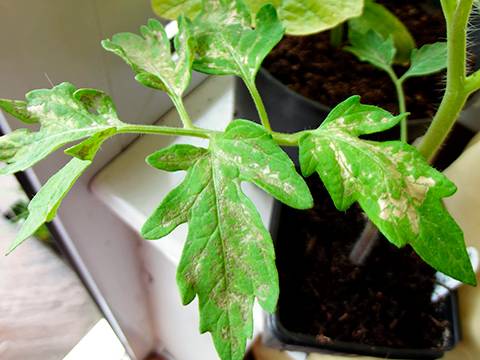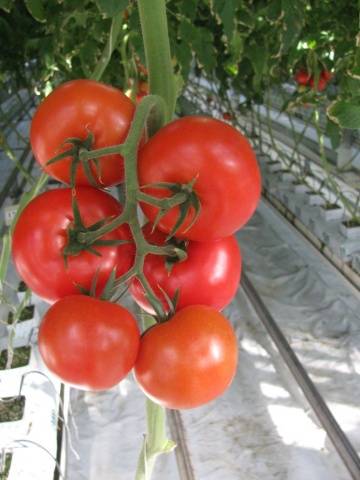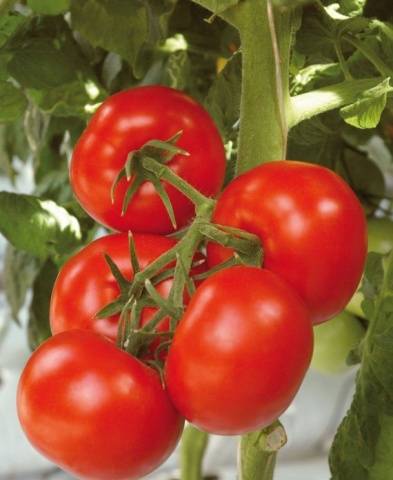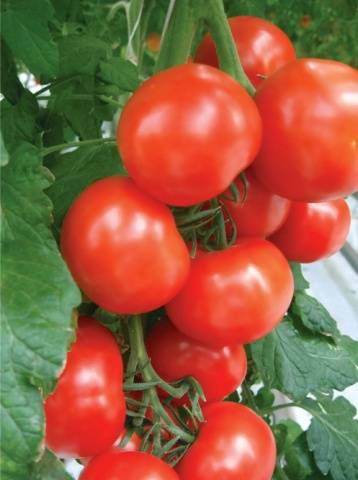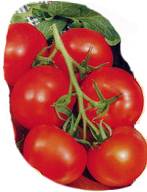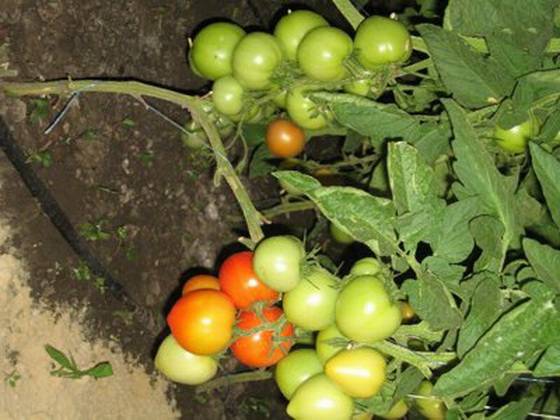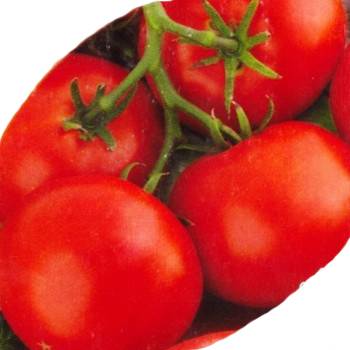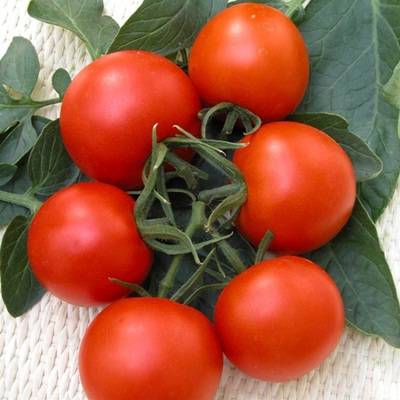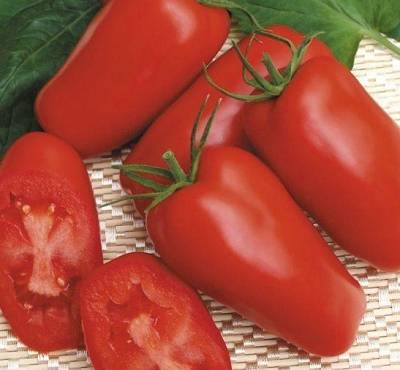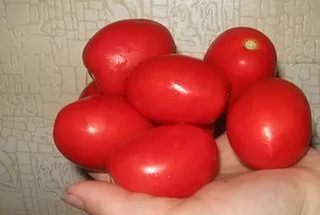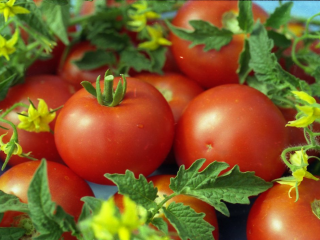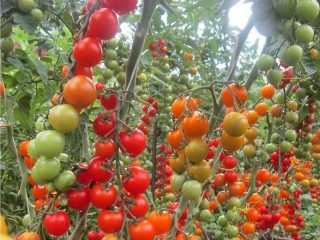While scientists around the world are breaking spears, what awaits us in the future: global warming to unimaginable temperatures or no less global glaciation due to the Gulf Stream, which has changed its course due to the melted ice of the Gulf Stream, the Earth's flora and fauna are forced to adapt to the annual “abnormally hot” summer weather. People are no exception. But if the townspeople can close in offices and apartments with air conditioning, then the gardeners have to not only work under the scorching sun in the beds, but also to select varieties of vegetables that can withstand such temperatures.
Most varieties of tomatoes, including foreign high-yielding hybrids, are not able to withstand high air temperatures. They usually grow at lower temperatures with little daily fluctuations.
Previously, heat-resistant varieties of tomatoes were of interest only to summer residents of the southern regions, where the air temperature sometimes could exceed 35 ° C, and even higher in the sun. Today, even residents of the Middle Strip are forced to plant these same varieties.
But at this temperature, good ovary formation is shown by varieties and hybrids from the Gavrish company.
In the case of a very dry and hot summer, when drought and stuffiness are added to the hot air, tomatoes get sick with vertex rot, the leaves curl and fall off. If the difference between night and day temperatures is too great, the fruits crack near the stalk. Such tomatoes rot on the vine. Even if they have time to ripen, they are no longer suitable for conservation and storage. Hybrids from the firms "Gavrish", "SeDeK", "Ilyinichna", "Aelita" are able to withstand such conditions and give a harvest. Heat over 34 degrees for a long time leads to burns of fruits and leaves, as well as superficial roots of tomato bushes.
Tomato varieties specially bred for the southern regions are able to resist this problem. For example, Gazpacho from Gavrish.
You should immediately decide on the terminology. "Drought resistant", "heat resistant" and "heat resistant" are not synonymous with plants. Drought resistance does not imply mandatory heat resistance. In the absence of rain, the air temperature may well be quite low and not exceed 25-30 ° C. A heat-resistant plant that can easily tolerate heat at 40 ° C can be very sensitive to the lack of water in the soil. The concept of "heat resistance" has nothing to do with living organisms at all. It is used to determine the ability of the materials from which structures are made to work at elevated temperatures without noticeable deformation. Steel may be heat-resistant, but not living wood.
Heat-resistant domestic varieties of tomatoes
Indeterminate Tomatoes
Variety "Babylon F1"
New mid-season heat-resistant hybrid. Tall shrub with medium-sized dark green foliage. Up to 6 ovaries are formed on the brush.
Tomatoes are red, round, weighing up to 180g. In an immature state, they have a dark green spot near the stalk.
The variety is resistant to nematodes and pathogenic microflora. The fruits are distinguished by good transportability.
Variety "Alcazar F1"
One of the best hybrids from the Gavrish firm. The variety is indeterminate with a strong root system, thanks to which the top of the stem does not become thinner when it is loaded with tomatoes.It has proven itself well when grown in greenhouse conditions. The main cultivation method is hydroponic, but the cultivar also bears fruit well when grown in soil.
Medium early variety, growing season 115 days. The bush belongs to the "vegetative" type with large dark green foliage. The stem grows actively throughout the growing season. The variety perfectly tolerates the summer heat. Forms ovaries stably both in winter with a lack of lighting and in hot summer.
Rounded tomatoes, evened in size, weight up to 150 g.
Genetically resistant to tomato cracking and top rot. Resistant to pathogenic microflora.
Variety "Chelbas F1"
One of the best varieties from the Gavrish firm. Medium early tomato with a growing season of 115 days. The bush is indeterminate, strongly leafy. Recommended for growing in greenhouses in summer and autumn and for growing in winter and spring.
Up to 7 tomatoes weighing up to 130 g are usually tied in a brush. Fruits can be stored for up to 40 days, withstanding long-distance transportation.
It forms ovaries well in any conditions, resistance to heat makes it possible to grow this variety not only in southern Russia, but also in hotter regions up to Egypt and Iran.
In addition to resistance to pathogenic microflora, the variety is immune to yellow leaf curling. Grows well on soil infested with root knot nematode. All this allows you to get good yields of this hybrid in almost any conditions.
Variety "Fantomas F1"
Indeterminate medium leafy variety, recommended for cultivation in the Middle lane in greenhouses. The branchiness of the bush is average. The foliage is medium in size. The height of the bush and the size of the tomatoes are also average. It would be a stable middle peasant if it were not for the yield (up to 38 kg / m²) and the marketable output of 97%.
Tomato weighing about 114 g. Maximum size 150 g. Spherical, smooth.
The variety is resistant to fungal diseases.
Not all gardeners can put a high greenhouse on their site for growing indeterminate varieties of tomatoes. In low greenhouses, such varieties, growing to the ceiling, cease to grow and bear fruit. This problem can be avoided by lowering the stem of the indeterminate tomato.
Determinant tomatoes
Variety "Ramses F1"
Designed for growing under the film in personal subsidiary plots. Manufacturer: Agrofirm "Ilyinichna". Bush determinant with a vegetation period of 110 days.
Tomatoes are rounded, slightly tapering at the bottom. Firm, red when ripe. The weight of one tomato is 140 g. The ovaries are collected in brushes, of which there are up to 4 pieces on each bush. Productivity up to 13 kg per sq. M.
Resistant to pathogenic microorganisms.
Variety "Portland F1"
Mid-early hybrid from "Gavrish", bred in 1995. Determinate bush, up to one and a half meters high. The growing season is 110 days. Differs in high productivity and amicable ripening of tomatoes. Up to 5 kg are harvested from one bush with a planting density of 3 bushes per meter.
Fruits are round, smooth, weighing up to 110 g. Recommended for canning whole fruits and salads.
The variety is distinguished by its ability to form good ovaries in case of sudden changes in air temperature and high humidity. The stepchildren are removed, forming a bush into one stem. Resistant to pathogenic microflora.
Variety "Verlioka plus F1"
High-yielding early ripening hybrid with amicable fruit ripening. The determinant bush can grow up to 180 cm, requiring tying if it is too tall. Form a bush into one stem. Up to 10 ovaries are formed on the clusters of inflorescences.
Round tomatoes weighing up to 130 g. The purpose of the variety is universal. The thin but dense skin prevents the tomatoes from cracking.
The variety is resistant to short-term drought and sudden changes in daily temperatures. Resistant to the most common nightshade diseases.
Disinfection is not required, but it is recommended to treat the seeds with a growth stimulator 12 hours before sowing.
Variety "Gazpacho"
Medium-late yielding variety from the Gavrish firm, intended for open beds. It takes 4 months for tomatoes to ripen. Determinant bush, medium obliteration, up to 40 cm high. Yield up to 5 kg per unit area.
Tomatoes are elongated, uniform red in color when ripe, weighing up to 80 g. Fruits do not crumble when ripe, firmly holding on to the brush.
A variety of universal use. Resistant not only to heat, but also to major fungal diseases and nematodes.
Since the main purpose of the variety is growing in the open field, then under these conditions, the bush is moderately stalked. When grown in a greenhouse, the growth point is transferred to a lateral shoot that has grown under the last brush, forming a bush into one stem. The variety is planted according to the scheme 0.4x0.6 m.
The variety needs regular watering and plenty of sunlight, as well as mineral fertilizers.
Types of heat-resistant tomatoes
Tomatoes are divided into two types according to their ability to withstand heat: vegetative and generative.
Vegetative bushes are heavily leafy, have numerous stepchildren. Normally, such bushes are planted no more than 3 per square meter, be sure to remove the stepsons. With the growth of stepsons more than 10 cm, no more than 60% of the fruits of the norm will be tied on the brushes of tomatoes of this type. But it is precisely these varieties that are able to provide the gardener with a harvest in hot weather and low humidity levels. Even when the leaves curl and burn, the foliage area is sufficient to protect most of the tomatoes from the sun.
The generative type of tomatoes has small foliage and few stepsons. These varieties are good for northern regions where their fruits can get enough sun to ripen. But the abnormally hot summer of the last few years has played a cruel joke on them. Fruits not protected by "burnt" leaves do not ripen, although initially the ovaries promise a good harvest. Non-ripening of fruits is due to the small amount of the antioxidant lycopene, which is synthesized in the temperature range from 14 to 30 ° C. Tomatoes do not turn red without it, remaining pale orange at best. Also, under such weather conditions, tomatoes develop apical rot. It is necessary to plant generative-type tomatoes at least 4 per square meter, trying to keep as much foliage as possible on them. Sometimes even at the expense of leaving a couple of leaves on the pinched stepchildren.
But if you make a mistake, you can try to save the crop. At night temperatures not lower than 18 °, tomatoes are watered in the evening. Tomato bushes are shaded with non-woven fabric. If possible, a two-color film is placed on the beds with the white side up to retain moisture in the soil and reduce the temperature of the soil.
When growing indeterminate tomatoes in the greenhouse, you will need to open the greenhouse as much as possible. If it is possible to remove the side walls, then they must be removed. The vents must also be opened and covered with non-woven material.
When choosing heat-resistant tomatoes, you can focus, if possible, on the appearance of the bush (whether the foliage protects the fruit) and the annotation of the manufacturer. Unfortunately, not all Russian firms consider it necessary to indicate on the packaging such an advantage of the variety as heat resistance. In this case, only an experimental clarification of the qualities of tomatoes is possible.
